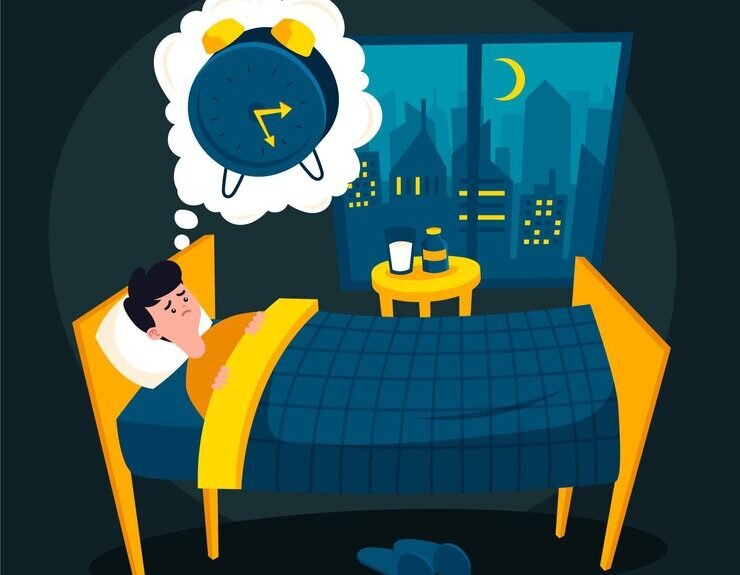How to Better Sleep at Night Naturally
Sleep is essential for our overall well-being, influencing everything from our mood to our physical health. Yet, many of us find it challenging to achieve sufficient restful sleep each night. While some may turn to medication, there is an increasing interest in natural methods to improve better sleep quality.
Many individuals prefer natural solutions for better sleep, often due to concerns about side effects or the risk of becoming dependent on medications. Additionally, natural remedies can provide a more holistic approach, aiming to foster lasting changes in lifestyle and habits rather than just offering a temporary fix.
7 Tips to Help You Better Sleep Naturally
1. Choose Your Drinks Wisely

What you consume before bedtime can significantly affect your sleep. Caffeine and alcohol are known disruptors, so it’s wise to steer clear of them later in the day. Instead, consider warm milk, chamomile tea, or tart cherry juice in the evening, as these are often linked to relaxation. Just be careful not to drink too close to bedtime to avoid those late-night bathroom trips.
2. Move Your Body Mindfully

Deeper, more restful sleep can result from frequent physical activity. However, exercising too close to bedtime might leave you feeling too energized to fall asleep. Aim to finish any vigorous workouts a few hours before bed to allow your body to unwind and cool down. You might also try Mel Mah’s Sleep Routine for gentle movements that won’t disrupt your sleep.
3. Try Natural Supplements (If Appropriate)

Certain natural supplements may help enhance your sleep. For instance, melatonin can assist in regulating your sleep cycle, especially if you’re often exposed to artificial light. Other options like magnesium, valerian root, l-theanine, and lavender are also believed to promote better sleep. Before beginning any new supplement therapy, make sure it’s safe for you by speaking with your healthcare physician.
4. Optimize Your Sleep Environment

To improve your sleep without medication, create a bedroom that’s conducive to rest. Keep the space cool, dark, and quiet. Think about using earplugs or a white noise machine to reduce noise and blackout curtains to block out light. Playing Alpha Waves for Pre-Sleep Relaxation as you prepare for bed can also help you unwind and get ready for deep sleep.
5. Wind Down with Intention
Incorporate meditation and mindfulness into your evening routine to enhance sleep quality. Techniques like guided meditations, deep breathing exercises, or gentle yoga can calm your mind and prepare your body for rest. Other soothing activities, such as listening to music, taking a warm bath, or reading a book, can also enrich your nighttime routine. Try combining mindfulness with gratitude by adding sleep meditation to your practice, like Tamara Levitt’s Drifting Off With Gratitude.
6. Practice Better Sleep Hygiene

Maintaining a consistent bedtime and wake-up time each day aids in regulating your body’s internal clock. It may be simpler to fall asleep and wake up naturally with this consistency. Try to stick to your sleep schedule as much as possible, even on weekends, to maintain this rhythm. You can also explore the tools for sound sleep in the week-long guided series, 7 Days of Sleep, designed to help you build consistency and routine.
7. Limit Screen Time Before Bed

Screens emit blue light, which can hinder melatonin production, the hormone that aids sleep. To sleep better naturally, turn off electronic devices at least an hour before bedtime to help your body prepare for rest. Consider using settings or apps that minimize exposure to blue light in the evening if you must use a gadget. You might also enjoy Mel Mah’s Screen Off, Sleep On guided movement meditation as a healthier alternative to scrolling on your phone or watching TV too close to bedtime.
What Are the Benefits of Natural Sleep Solutions Over Medications?
When exploring ways to sleep better without medication, it’s essential to recognize the benefits of natural approaches. However, keep in mind that some individuals may still require medication for sleep. Discussing your options with a doctor can help you find an alternative that suits you.
Downsides of Sleep Medication

- Dependency Risks: A significant concern with sleep medications is the potential for dependency. Over time, you may find it increasingly difficult to sleep without them, leading to a cycle of reliance.
- Side Effects: Sleep medications can come with side effects, which may vary in intensity from person to person. Common issues include daytime drowsiness, dizziness, and some cognitive disruptions, such as memory problems.
- Masking Underlying Issues: While medications may provide quick relief by helping you fall asleep, they often don’t address the root causes of sleep disturbances. If underlying issues like stress, poor diet, or unhealthy sleep habits aren’t tackled, your sleep problems may resurface once you stop taking the medication.
Upsides of Natural Sleep Remedies

- Address Root Causes: Natural sleep strategies focus on tackling the underlying factors that contribute to sleep issues. By addressing these root causes, such as stress or an unsuitable sleep environment, you may improve your sleep quality for the long term.
- Fewer Side Effects: Generally, natural methods are associated with fewer and less severe side effects compared to medications, making them a safer choice for many, especially those concerned about the impact of drugs on their health.
- Promote Overall Wellbeing: Many natural sleep remedies, like regular exercise and a balanced diet, offer benefits that extend beyond just improving sleep. They can enhance your overall health and well-being, leading to a better quality of life.
- Sustainable Long-Term Solutions: Embracing natural approaches to improve sleep can foster lasting changes and healthier sleep habits. These methods are sustainable over time, providing a way to maintain good sleep without ongoing reliance on medication.
Final Thoughts
Improving your sleep naturally is not only possible but can lead to sustainable changes that enhance your overall well-being. By incorporating these seven tips ranging from mindful movement to optimizing your sleep environment you can foster better sleep habits without the risks associated with medication. Embracing natural remedies offers the potential for long-term benefits, addressing the root causes of sleep disturbances and promoting a healthier lifestyle. Prioritize your sleep and experience the positive effects it has on your mood, energy levels, and overall health.
Love what you read? Join our community! Like, share, and follow Wikifomo for more exciting insights. Your support encourages our passion! Thank You.
FAQ
1. What are the best natural remedies for improving sleep?
Natural remedies include herbal teas like chamomile, supplements such as melatonin and magnesium, and relaxation techniques like meditation and deep breathing exercises.
2. How can I create a sleep-friendly environment?
Make your bedroom cool, dark, and quiet. Use blackout curtains, earplugs, or a white noise machine to minimize disturbances, and keep electronic devices away from the sleeping area.
3. What is sleep hygiene, and how does it affect sleep quality?
Sleep hygiene refers to habits and practices that promote better sleep, such as maintaining a consistent sleep schedule, limiting screen time before bed, and creating a relaxing bedtime routine.
4. Are there any side effects of using natural sleep remedies?
Generally, natural remedies have fewer side effects than sleep medications, but it’s essential to consult with a healthcare provider before starting any new supplement or routine.
5. How long does it take to see improvements in sleep quality with natural methods?
Improvements can vary, but many people notice changes within a few weeks of consistently applying natural sleep strategies.



